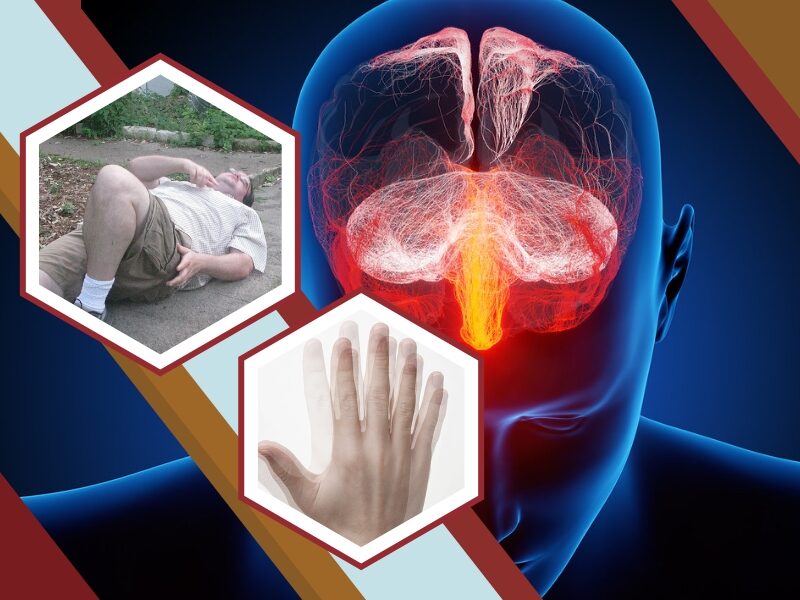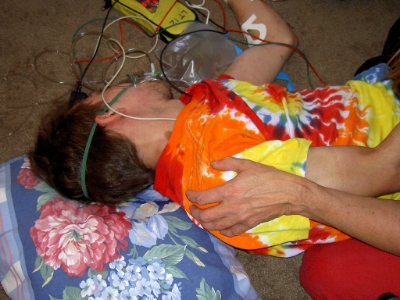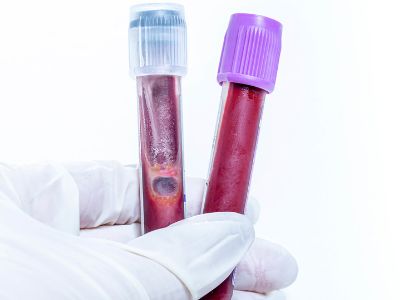Epilepsy: Symptoms, Causes, and Treatment

What is Epilepsy?
Epilepsy is a chronic disease of the brain that affects around 50 million people worldwide. It is characterized by recurrent seizures, which are brief episodes of involuntary movement that may involve a part of the part or the entire body. It is sometimes accompanied by loss of consciousness and control of bowel or bladder function.
Types of Epilepsy
1. Generalized
It usually starts during childhood. However, it can also affect adults. This affects both the left and right sides of the brain. Additionally, these may be either motor, which involves physical movement, or non-motor, which does not. Symptoms involve:

- Jerking movements
- Weakness or limp limbs
- Muscle twitching
- A rigid and tense muscle
- Full-body epileptic spasms
These may include these symptoms:
- A sudden stop in movement
- Staring into space
- Fluttering eyelids
- Brief twitches
2. Focal epilepsy
This can feel like an uneasy feeling in the stomach, similar to the feeling of riding a rollercoaster. They can start in one area and move to others. As the seizure progresses, a person can experience motor and non-motor symptoms such as:
- Spasms
- Jerking
- Muscle twitching
- Repeated movements, like clapping or chewing
Some non-motor symptoms of focal seizures include:
- Waves of hot or cold
- Lack of movement
- Changes in emotions and thoughts
- Goosebumps
3. Combined generalized and focal
Someone with combination epilepsy has both generalized and focal seizures. The symptoms described above can therefore be mixed together.
4. Unknown epilepsy
Symptoms of non-motor and motor epilepsy can be present in people with this type. Motor seizures often present as tonic-clonic. These can have the following symptoms:
- Rapid, convulsing, and rhythmic jerking
- Loss of consciousness and stiffening
- Bluish face from lack of oxygen
- Loss of bowel and bladder control
Non-motor symptoms include:
- Vacant starring
- Stillness
- Sudden and stopped movement
Signs and Symptoms?
Patients tend to have the same type of seizure each time, so the symptoms will be similar.
- Temporary confusion
- Stiff muscles
- Uncontrollable jerking movements of the legs and arms
- Loss of consciousness or awareness
- Psychological symptoms such as fear, anxiety, or déjà vu
Causes of Epilepsy
The causes may vary for each person, and some people have no identifiable cause. Some cases are linked directly to genetics, trauma, autoimmune disorders, metabolic abnormalities, or infectious diseases. Causes include:
- Genetic causes. Some types run in families passed down from one generation to the next. Occasionally, it can occur due to genetic changes that were inherited and are occurring for the first time.
- Metabolic causes. Your body processes the food you eat with enzymes. A problem with one of these enzymes can make your body unable to break down food or produce energy.
- Infections. Infection is probably the most common cause worldwide. Attacks that occur as a result of an infection in the brain are considered infectious epilepsy.
- Autoimmune epilepsy. Your body’s immune system protects you from foreign substances and other things that could harm it. It is caused by a change in your body’s immune function.
- Structural causes. Certain abnormal structures in the brain can increase the risk of seizures. This might be something you are born with or develop later in life. Most structural causes can be seen in imaging of the brain with an MRI.

Diagnosis and Treatment of Epilepsy
To diagnose your condition, your doctor will review your symptoms and medical history. Your evaluation may include:
- A neurological exam. To diagnose your condition and determine its type, your doctor may assess your behavior, motor abilities, mental function, and other attributes.
- Computerized tomography (CT) scan. An MRI can reveal abnormalities in the structure of your brain, such as tumors, bleeding, or cysts, that may be causing your seizures.
- Magnetic resonance imaging (MRI). Your doctor may detect lesions or abnormalities in your brain that could be causing your seizures.
- Blood tests. An infection, genetic condition, or other condition that triggers the condition may be detected through a blood sample taken by your doctor.
- Electroencephalogram (EEG). This is the most common test used to diagnose epilepsy. The electrodes record the electrical activity of your brain.
Treatment or Medication for Epilepsy
Doctors may recommend you take one anti-seizure medication to decrease the frequency and intensity of their attacks by taking a combination of medications. Gabapentin is very effective in treating and managing the condition. It reduces abnormal excitement in the brain and relieves pain by changing the way the body senses discomfort.



